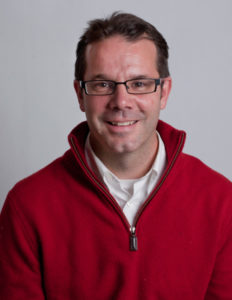 Sunday, October 8, 10:50 am — Adult Forum: Special 500th Anniversary of the Reformation — Luther College Associate Professor of History Robert Christman –Professor Christman will speak about Notre Dame Professor Brad Gregory’s new biography of Martin Luther, Rebel in the Ranks: Martin Luther, The Reformation, and the Conflicts that Continue to Shape our World. He will also provide a brief overview of the field of Reformation Studies, its changing emphases, newest avenues of investigation, and most recent insights. Christman’s research interests focus on the German reformation, late Medieval and early modern Europe history, including the intersection of Islam and Christianity.
Sunday, October 8, 10:50 am — Adult Forum: Special 500th Anniversary of the Reformation — Luther College Associate Professor of History Robert Christman –Professor Christman will speak about Notre Dame Professor Brad Gregory’s new biography of Martin Luther, Rebel in the Ranks: Martin Luther, The Reformation, and the Conflicts that Continue to Shape our World. He will also provide a brief overview of the field of Reformation Studies, its changing emphases, newest avenues of investigation, and most recent insights. Christman’s research interests focus on the German reformation, late Medieval and early modern Europe history, including the intersection of Islam and Christianity.
Robert Christman Presents at Adult Forum, Sunday, October 8, 2017
Sermon for Sunday, October 1, 2017 – “What Authority?”
Seventeenth Sunday after Pentecost
October 1, 2017
Good Shepherd Lutheran Church
Decorah, Iowa
Rev. Amy Zalk Larson
Click here to read scripture passages for the day.
Beloved of God, grace to you and peace in the name of Jesus. Amen.
Jesus is asked, “By what authority are you doing these things? Who gave you this authority?” The people asking Jesus those questions sound a lot like we do today. We live in a time when authority is often questioned. Public figures are asked, “What makes you think you have that kind of power? What gives you the right to do that?”
We debate what’s most authoritative for our life together as citizens and the importance of the constitution, the first amendment, the flag, the office of president and other branches of government. We wrestle with the role of scripture, creeds and church teachings in our own congregations and faith lives. Authority is not simply granted to institutions, to people who hold public office, to the church. These days authority must be earned.
There is much that is life-giving about these trends. Those who simply expect others to acquiesce to their authority are rightly challenged to think about how they use power. Leaders who are like the second son in this parable, who say they’re going to do something and yet don’t ever do it, are rightly called to task.
We expect integrity between words and actions, we look for authenticity.
When it comes to our own lives, we aren’t dependent on leaders and institutions to authorize us – to give us permission to act. We think for ourselves, make up our own minds. We take responsibility for authoring our lives, determining how we’ll make sense of them. We are rightly suspicious of those who seek to manipulate us and play mind games.
And yet, if we are the sole authority in our own lives, often our sinfulness prevails. We get curved in on ourselves. We end up guided only by our own interests and not by the needs of others and the common good. We become overly judgmental and critical of those who are willing to take on responsibility and leadership. Often, we are like the second son and say we’ll go work but then don’t follow through. Other times we’re like the first son who says he won’t work. Except, we don’t end up changing our minds, we just don’t act.
We do need something greater to help us get beyond ourselves, to move us to care for others, to get us to work for the common good. Our minds need to be changed, our lives need to be transformed. We need to be freed from the sin that binds us. We need some greater authority – one worthy of our trust, one that will shape us in life-giving ways and not harm us.
In his letter to the Philippians that we heard earlier today, the Apostle Paul addresses the concerns we have about change, leadership and authority. He wrote almost 2000 years also, yet his words speak into our current reality so powerfully. Paul tells his readers, then and now, that to avoid selfish ambition and conceit we need to have our minds changed and influenced by the mind of Jesus.
And Paul assures us that we can trust Jesus to lead us and not harm us because he is not manipulative or controlling, not a top down, heavy handed authority. As Paul points out, Jesus did not regard power and authority as something to be exploited, but rather emptied himself of control and humbled himself. He did not dominate from on high or demand our submission. Instead, he submitted himself to everything that brings us down: the human condition, sin, frailty and even death itself. Jesus was with us in all of it in a truly authentic way.
Yet Jesus did not stay dead. God the Father raised Jesus from the dead, showing that God has authority over sin and death. God cannot be stopped from working life. There is deep integrity between God’s word and God’s actions. The One who speaks about new life also works life. In the resurrection, God’s life- giving, transformative authority is shown.
And now God has placed Jesus in a place of honor. In this way, God has authorized and affirmed everything Jesus did on earth. God has said “yes” to Jesus’ stance of humility and to Jesus’ whole ministry of healing, feeding, blessing, setting people free, challenging unjust authorities, and eating with tax collectors and prostitutes. By raising Jesus from the dead and giving him a place of honor, God has shown that Jesus’ way of working, Jesus’ way of using power, is central to who God is.
The God we see revealed through the life, death and resurrection of Jesus is a very trustworthy authority for us. This authority can change us in life-giving ways. This is the kind of authority that, as Paul says, we can honor by bending our knee and showing reverence. In fact, Paul says one day every knee shall bend in honor of Jesus. One day, everyone will experience the freedom, humility, and new life that God is working for all creation.
Sometimes the promise that every knee shall bend in honor of Jesus has been interpreted to mean that Christians should get other people to submit to our way of thinking, that we should browbeat others into believing as we do. But that is not the way of Jesus. That kind of approach to faith and to church does not have integrity between words and actions. We cannot talk about a humble, self-emptying Jesus while acting with arrogance and superiority.
Instead, our work is to follow Jesus in lives marked by humility, service, and love. Our call is to be part of his ministry of healing, feeding, blessing, challenging unjust authorities and setting people free. We are to continue to extend Jesus’ unconditional welcome to all. In this way, others can experience God at work with them as well.
On our own, we can’t do this work. Yet, thanks be to God, as Paul says – God is at work in us, enabling us both to will and to work for good. This is true authority – the kind we need, the kind our world needs.
Let’s take a moment for silent prayer and reflection.
Blessing of the Animals, Saturday, October 7, 2017
 On Saturday October 7 at 10 am, at the Decorah Fish Hatchery, Good Shepherd will participate with the Decorah United Church of Christ and First Lutheran with a Blessing of the Animals. Come with your pet, or a picture of their pet, for a time of music, readings and blessings to celebrate the holiness of all creation and to ask God’s blessing on our animals. Don’t have a pet? Please come too, and join us for this special morning!
On Saturday October 7 at 10 am, at the Decorah Fish Hatchery, Good Shepherd will participate with the Decorah United Church of Christ and First Lutheran with a Blessing of the Animals. Come with your pet, or a picture of their pet, for a time of music, readings and blessings to celebrate the holiness of all creation and to ask God’s blessing on our animals. Don’t have a pet? Please come too, and join us for this special morning!
This Week at Good Shepherd, October 2-8, 2017
 Tuesday October 3
Tuesday October 3
4:00 p.m. – Mary Circle – Sharon Drew hosts
Wednesday, October 4
7:30 a.m. – Men’s Breakfast
6:00 p.m. – Confirmation Class
7:00 p.m. – Choir Rehearsal
8:00 p.m. – Band Rehearsal
Thursday, October 5
10:00 a.m. – Adult Bible Study
5:00 p.m. – Community Meal at First Lutheran
Sunday, October 8 – Eighteenth Sunday after Pentecost
8:45 a.m. – Choir Practice
9:30 a.m. – Worship with Holy Communion – 11a.m. Broadcast
10:30 a.m. – Fellowship Hour
10:45 a.m. – Sunday School and Youth Forum
10:50 a.m. – Adult Forum – Martin Luther biography, Rebel in the Ranks – Robert Christman
Sunday, October 1, Adult Forum, Bobby Vrtis talks about “The Life of Galileo”
Sunday, October 1, 10:50 am — Adult Forum: Luther College Theatre Department’s The Life of Galileo — Congregation member and Luther Assistant Professor of Theatre, Bobby Vrtis, will talk about Bertolt Brecht’s play, The Life of Galileo, to be performed October 5-7. Brecht was drawn to the subject of Galileo’s life because of his interest in the tension between a desire to speak (and discover) the truth and the need to survive in difficult times. Vrtis also plans to talk about Brecht’s theories of what theatre should do and how that is shaping the Luther College production.




